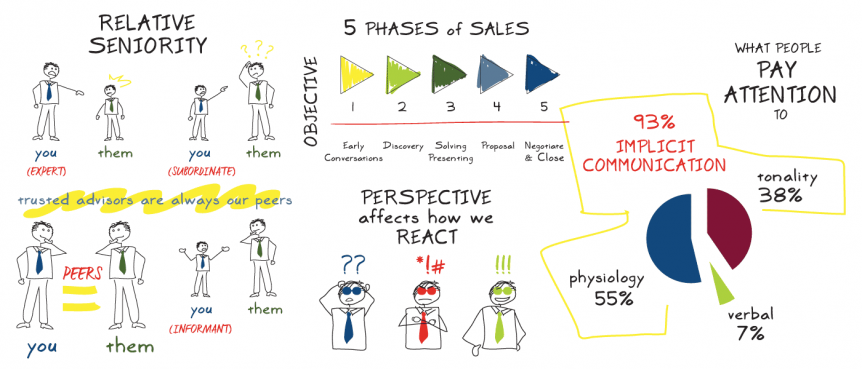Syntuity is conducting research focusing on Knowledge Workers and Interpersonal Skills
Abstract
Sometimes a company’s smartest people are rather handicapped when it comes to situations requiring tact, persuasion, influence, leadership, conversational elegance, emotion, etc. This white paper looks at the numerous roles and situations in which this behavior arises, the problems it causes, the workarounds that get implemented to mitigate the issue, and the actual solutions available to generate long term behavioral change in the personalities and interpersonal skills of, well, anybody who shows that narcissistic, know it all, fear of rejection, talks too much, talks too little, talks about the wrong thing, dysfunctional behavior in the workplace.
Big Questions This Research Investigates:
First off, a simple definition will greatly help with discussion around the subject matter.
Definition for: The Problem
Let’s define the greater set of all manifestations of “The Problem” which is the centerpiece of this paper. Summarily, The Problem exists when a person believes that the objects, facts, documents, things are more important than the people, the conversation, the rapport or the relationships which are present. As a result, businesses lose opportunities, internal and external inefficiencies are introduced, small issues escalate into big issues, some human resources are grossly underutilized while others are grossly overworked, and ultimately money and opportunities can be lost. Some observations of The Problem:
- Over-reliance upon superior data, facts, specifications, feeds & speeds
- Arrogance and alienation of peers/partners/prospects/customers
- “Better than you” or “Smarter than you” attitudes that manifest as disengaged, disinterested, self-interested or otherwise ineffective interpersonal demeanor
- Complete focus on the numbers/empirical data coupled with a devaluation of the people, relationships and big picture strategies or needs
- Egocentric/Arrogant/Self Focused/Needy/Narcissistic/Mine is better than yours behavior
- Personal aggrandizement which is intended to build credibility and trust, but instead it builds competitiveness and contempt
The big questions we are asking are:
- Where does The Problem exist?
- Does The Problem have an associated hard or soft cost?
- What would appropriate behavioral change look like?
- What have you tried to successfully or unsuccessfully resolve The Problem?
- How have you tracked success?



